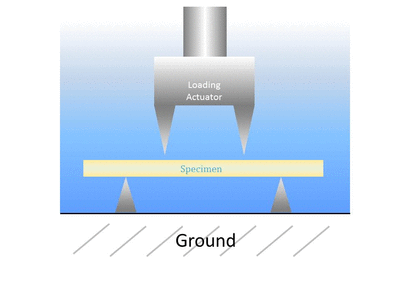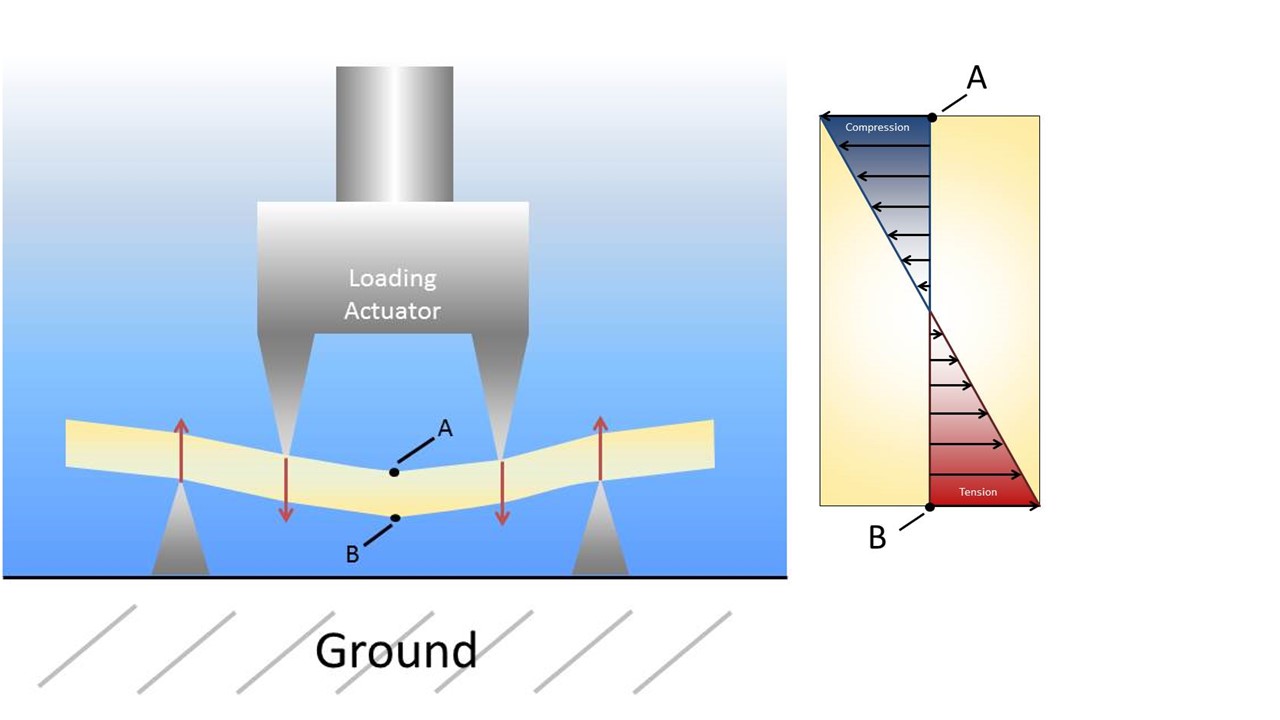Penn Center for Musculoskeletal Disorders
Three Point and Four Point Bending

Flexural strength, or bend strength, is defined as a material's ability to resist deformation under load. The flexural strength represents the highest stress experienced within the material at its moment of rupture. It is measured in terms of stress. Three and four point bend tests are commonly used to determine the flexural strength of a specimen.
When a specimen is bent, it experiences a range of stresses across its depth. At the edge of the concave face of the specimen (point A), the stress will be at its maximum compressive value. At the convex face of the specimen (point B), the stress will be at its maximum tensile value. Most materials fail under tensile stress before they fail under compressive stress, so the maximum tensile stress value that can be sustained before the specimen fails is its flexural strength. The flexural strength would be the same as thetensile strength if the material were homogeneous. In the case of bones, the complex structure and small defects within the specimen serve to concentrate stresses locally, effectively causing localized weaknesses and lower flexural strength values.

The mechanics that dictate bending tests rely heavily upon the geometry of the specimen. For example, rectangular specimens are treated differently than cylindrical ones. The arrangement of the testing apparatus (three-point or four-point bend, distance between supports, etc.) also influences the calculation of the beam mechanics. For more in-depth detail, click the links below to see step-by-step calculations that are made during bend tests:
Example 1: Rectangular Specimen in Three Point Bending Test
Example 2: Cylindrical Specimen in Three Point Bending Test
© The Trustees of the University of Pennsylvania | Site best viewed in a supported browser. | Report Accessibility Issues and Get Help | Privacy Policy | Site Design: PMACS Web Team.
